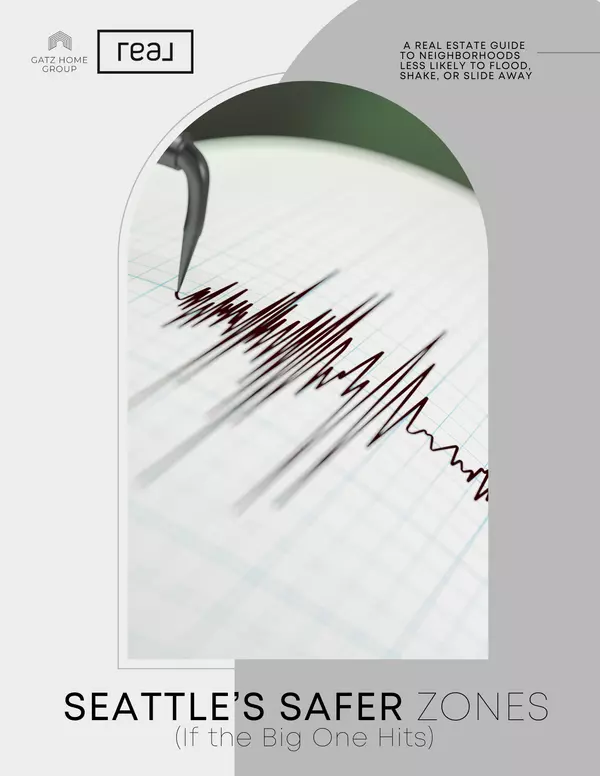Should You Use an Escalation Clause? Pros & Cons for Washington Homebuyers
What Is an Escalation Clause? Seattle Buyers & Sellers, Here’s What You Need to Know
In today’s competitive Washington housing market—especially in cities like Seattle, Kent, Covington, and Maple Valley—buyers often find themselves in multiple-offer situations. To stay ahead, some use escalation clauses to automatically increase their offer if another buyer bids higher. But how do escalation clauses work in Washington State, and are they the right strategy for you? Let’s break it down.
What Is an Escalation Clause? Seattle Buyers Ask, Here’s the Answer!
An escalation clause is an addendum to a purchase and sale agreement that allows a buyer to increase their offer if a competing bid comes in higher. It typically includes:
- A base offer price (e.g., $600,000)
- An escalation amount (e.g., “$5,000 over the highest competing offer”)
- A maximum cap (e.g., “up to $650,000”)
- Proof of a competing offer (usually required from the seller)
If another buyer submits an offer higher than yours, your escalation clause automatically increases your bid in increments (your escalation amount) up to your maximum price.
Example of an Escalation Clause in Action
Let’s say you offer $600,000 on a Kent home with a $5,000 escalation clause up to $650,000.
- Another buyer offers $610,000.
- Your offer automatically escalates to $615,000 ($5,000 over the competing bid).
- If another buyer offers $655,000, your escalation cap prevents you from going higher, so you’re outbid.
Are Escalation Clauses Legal in Washington State?
Yes! Escalation clauses are legal in Washington, but they must be carefully structured. Washington’s real estate laws require sellers to provide proof of a competing offer if an escalation clause is triggered. That means your real estate agent should review the competing bid before the escalation clause kicks in.
When Should You Use an Escalation Clause?
✅ When the Market is Competitive – If homes in your area are selling with multiple offers, an escalation clause can prevent you from being outbid by just a few thousand dollars.
✅ When You’re Confident in Your Budget – If you know your financial limit and want to be aggressive in winning a home, an escalation clause can help.
✅ When You Want to Stand Out Without Overpaying – Rather than guessing how high you need to bid, an escalation clause lets you stay competitive without immediately offering your highest number.
When an Escalation Clause Might Hurt You
🚫 When You Want to Negotiate – Sellers may prefer a clean, straightforward offer over one with conditions like an escalation clause.
🚫 When You’re Concerned About Appraisal Risks – If your escalated price goes well beyond the home’s appraised value, you might have to cover the difference in cash.
🚫 When the Seller Chooses a Simple Offer – Some sellers ignore escalation clauses and just pick the highest offer outright. In these cases, a strong initial offer might be a better strategy.
Do Sellers Like Escalation Clauses?
It depends. Some sellers appreciate escalation clauses because they help drive the price up. Others prefer a straightforward, highest-and-best offer with no extra steps. If a seller has multiple offers, they might choose the highest clean offer rather than engage with escalations.
How to Write an Effective Escalation Clause
If you decide to use an escalation clause, here are some best practices:
- Set a competitive base offer – Starting too low can backfire.
- Use a strong escalation amount – $1,000 increases might not be compelling in a hot market, but $5,000-$10,000 increments can make a difference.
- Know your max limit – Don’t escalate beyond what you’re financially comfortable with.
- Work with a skilled negotiator – A strong buyer’s agent (like myself! 😉) will ensure your escalation clause is structured correctly and presents your offer strategically.
Washington State’s Unique Considerations
Washington’s standard purchase and sale agreement does not automatically include an escalation clause, so your real estate agent must draft it correctly using an appropriate addendum. Also, under Washington law:
- Sellers must provide written proof of a competing offer before your escalation clause is triggered.
- A buyer’s loan pre-approval should align with the highest possible price to avoid financing issues.
- Some listing agents discourage escalation clauses and may require a “highest and best” offer instead.
Final Thoughts
Escalation clauses can be powerful tools in a multiple-offer situation, but they aren’t always the best strategy. Understanding how they work—and when to use them—can make all the difference.
🔹 Thinking about using an escalation clause in your next offer? Let’s chat! I’ll help you structure a winning offer that maximizes your chances of success while keeping your budget in check. DM me or book a consultation today!
Categories
Recent Posts










GET MORE INFORMATION


